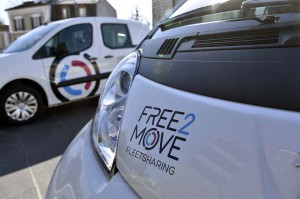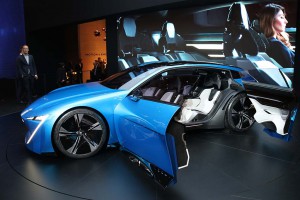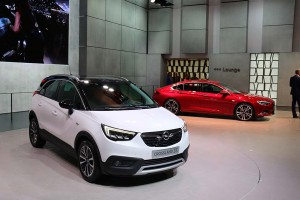You can’t buy a Peugeot or Citroen in the U.S. But you might soon be able to drive one. PSA, the parent of those two French brands, has launched a new car-sharing service in Los Angeles, called Free2Move, that it’s billing as its “first step” for what may soon become a return to the American market.
PSA was one of a number of European brands that left the U.S. in the 1990s, and the company has openly regretted that decision ever since, frequently suggesting it would make a return. Now, the groundwork is being laid with the Free2Move project, which started up this week at LAX, Tinseltown’s crowded airport.
Longer-term, said PSA Group in a statement, the goal is “to develop mobility solutions with PSA Group’s cars, before marketing vehicles directly in North America.” No timetable for the next phase of the project has been released.
(Peugeot 3008 named European Car of the Year. Click Here for the story.)
PSA is by no means the only automaker looking for opportunities in alternative “mobility services.” In fact, Ford CEO Mark Fields has declared his company a “mobility service provider,” rather than an automotive manufacturer. General Motors, Volkswagen, Toyota, Daimler and a host of other major carmakers have teamed up with car- and ride-sharing services like Uber, Lyft, Gett and ZipCar, or launched services of their own.
PSA first announced plans last month to partner with Free2Move Lease, the fourth-largest leaser in France, as a way to build B2B demand for its Peugeot, Citroen and DS brands.
The new venture focuses on car-sharing, and will allow owners flying through LAX to essentially put their vehicles to work. Visitors to the Los Angeles area will be able to rent those vehicles at a Free2Move lot at what the service promises will be about rates about “50% less expensive than with a traditional car rental offer.”
The move is apparently meant to establish a base of operations and would not focus on PSA vehicles. But it appears that the French carmaker might eventually use the Free2Move service to give travelers an opportunity to try them out. Daimler AG has used a similar strategy to build interest in the Smart brand by offering the Fortwo model through Car2Go outlets across the U.S.
Sources tell TheDetroitBureau.com that PSA is very clearly planning to make a return to the American market, though the timing for setting up some sort of vehicle distribution network has not been determined – in part because the carmaker is exploring its alternatives. That might mean skipping the traditional dealer approach and adopting an alternative, such as the factory-owned process put in place by Tesla.
To help determine the best approach, PSA has hired Larry Dominique as its senior vice president and head of North American operations. A 30-year industry veteran, Dominique has worked for General Motors, Chrysler and Nissan and, more recently, worked for both TrueCar and its Automotive Lease Guide subsidiary.
(Alfa Giulia makes its long-awaited, critical sales debut. Click Here for more.)
What’s clear is that there will be plenty of challenges in making a return to the U.S., which PSA abandoned in 1991, about the same time brands like Alfa Romeo, Fiat, Rover and PSA’s French rival Renault left the market. Fiat came back as part of a dial to take over struggling Chrysler after the Detroit maker’s 2010 bankruptcy, but the Italian brand has gained far less traction than it hoped. Alfa – also owned by Fiat Chrysler – is just now launching a major product blitz that will determine whether it can find an opportunity in the American market.
What’s unclear is whether PSA will seek any assistance in its return from General Motors. The two companies have partnered on a handful of projects in recent years. And, last month, the French company agreed to purchase GM’s long-troubled German subsidiary, Opel. With that acquisition, PSA grows from an also-ran in the global auto sales race to become one of the industry’s largest manufacturers.
(PSA buys Opel, but deal could take years to complete. Click Here for the story.)



